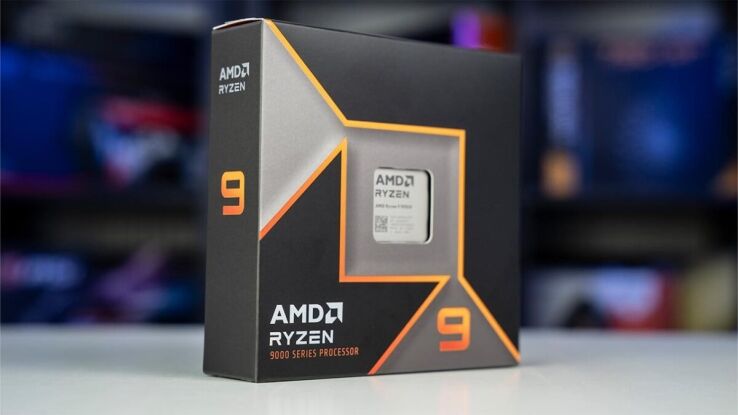New AGESA update massively reduces 9000 series inter-core latency
AGESA update coming in strong with the performance AND latency improvements

WePC is reader-supported. When you buy through links on our site, we may earn an affiliate commission. Prices subject to change. Learn more
Ryzen 9000 series latency has dropped from 180 ns to 75 ns thanks to the new AGESA 1.2.0.2 update.
Upon launch, AMD’s Ryzen 9000 series were not only slated for their less-than-impressive performance, but also received criticism over the high latency between CPU Cores. This latency was measured at around 180 ns, according to domdtxdissar on the Overclock 3D forums, which was a lot higher than that measured on the previous generation Ryzen processors (around 76 ns on the 7950X).
With the introduction of AGESA update 1.2.0.2, the core-to-core latency of Ryzen 9000 series CPUs was significantly reduced, allowing for a respectable performance uplift. We conducted our own test of AGESA 1202 and found that the stable 105W TDP mode in that update allowed for fantastic uplifts. Now we know that there was more at play.
ASUS was the first motherboard manufacturer to debut this new AGESA update in the form of a beta BIOS, this is when we tested the 105W TDP mode on the 9600X, and when we discovered around a 5% uplift in the Cinebench benchmarks – but that’s just one benchmark that isn’t particularly latency-bound.
Ryzen 9000 latency tests
domdtxdissar, on the Overclockers 3D forums “heard rumors” of the performance and latency improvements that the AGESA 1202 update brought and decided to put it to the test.
Using capframeX core-to-core latency, they benchmarked the 9950X and found that the cross-CCD latency was around 180 ns when performed on AGESA 1.2.0.1A. However, when they performed the same benchmark after updating to AGESA 1.2.0.2, the tests revealed a cross-CCD latency of just 75 ns, less than half of the original latency.
This seems to have fixed the issues that the Ryzen 9000 series has been having since its launch a little over a month ago. We see that the latency has improved by more than half. These results may vary for other Ryzen SKUs and motherboards.
Reviewers should now begin testing the Ryzen 9000 series again in preparation for the Core Ultra launch. AMD should just about be up to snuff in the nick of time, the more we investigate the Ryzen 9000 series, the more we seem to find wrong with it. Maybe we should just stop looking.